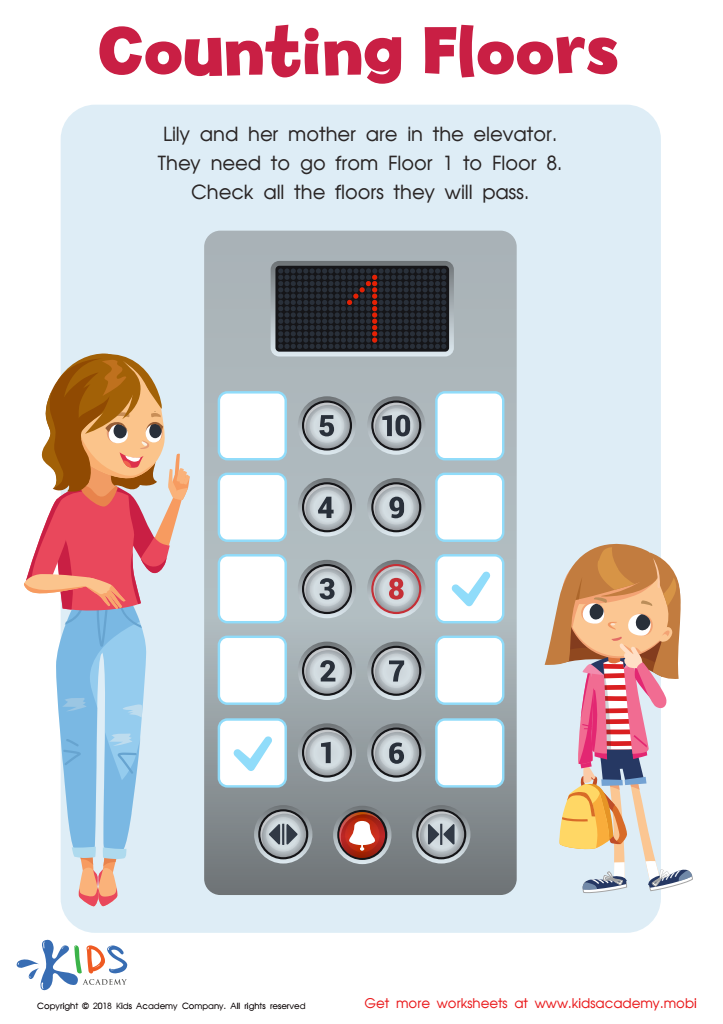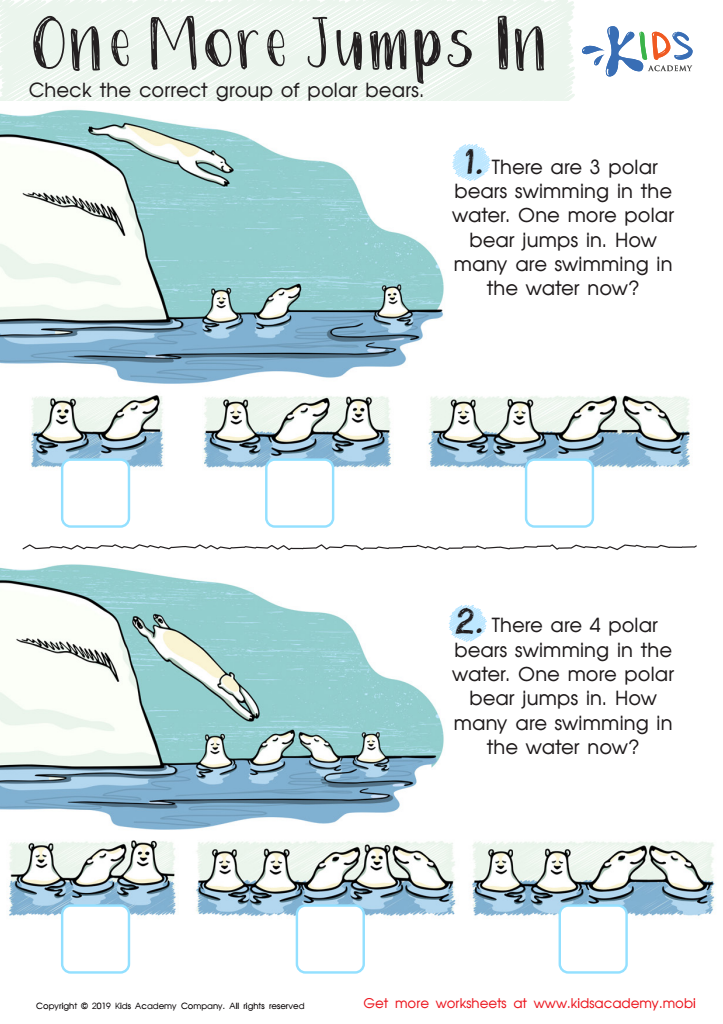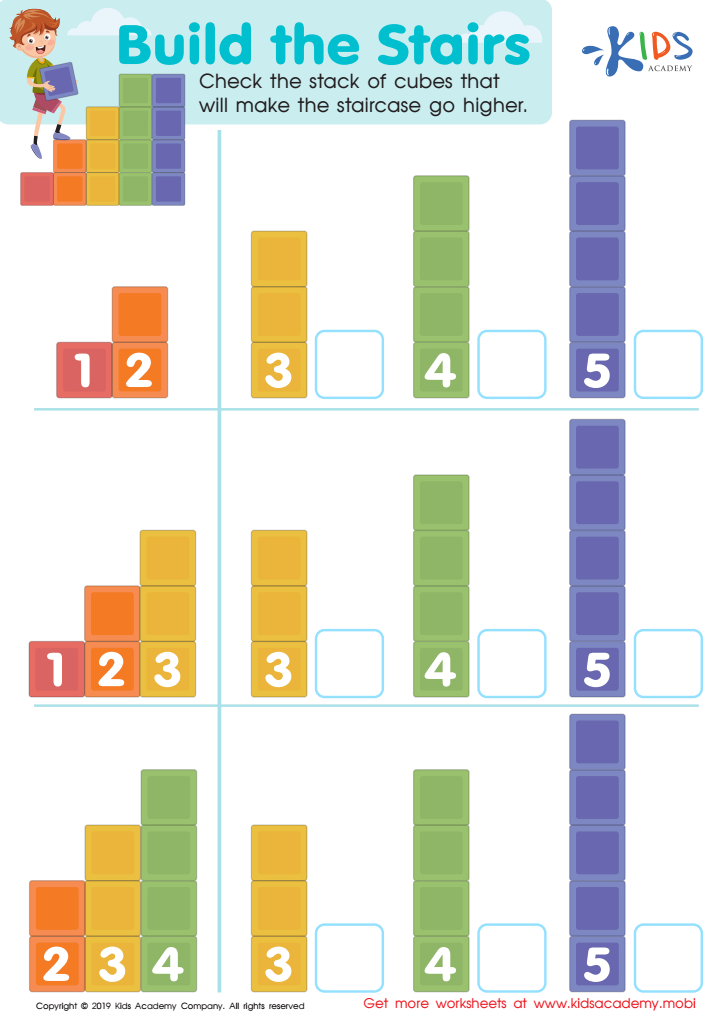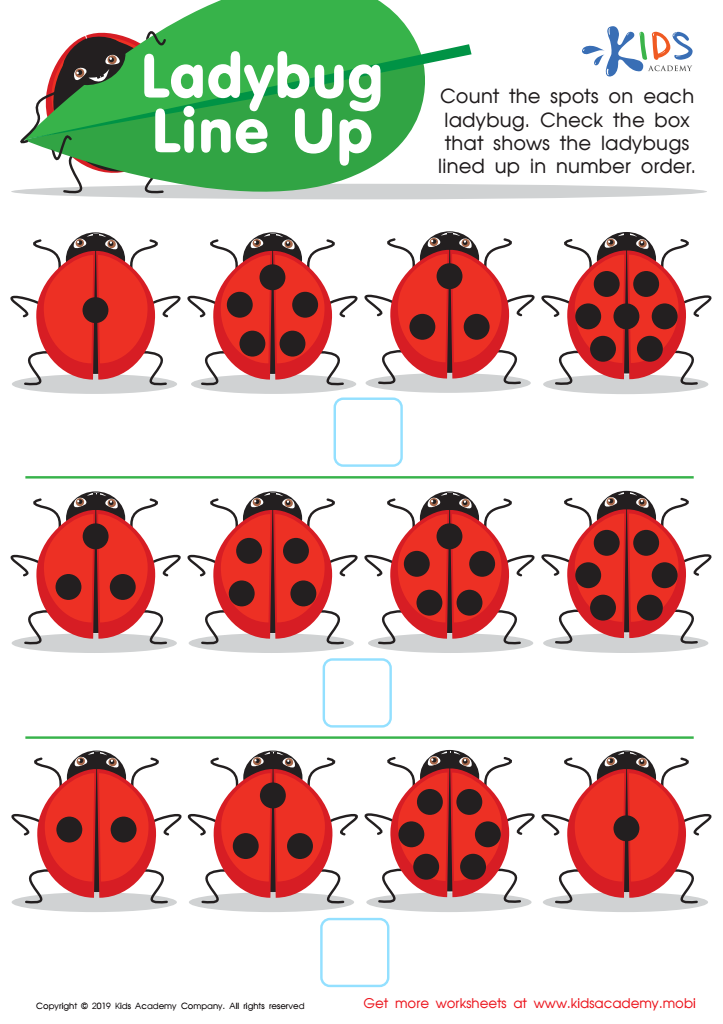Understanding sequencing Math Worksheets for 3-Year-Olds
4 filtered results
-
From - To
Unlock the potential of your 3-year-old's mathematical skills with our "Understanding Sequencing Math Worksheets"! This engaging resource introduces young learners to the essential concept of sequencing through fun activities and colorful illustrations. Children will explore patterns, order, and relationships as they complete various exercises designed to enhance cognitive development. By practicing sequencing, kids will improve critical thinking and problem-solving skills while laying a strong foundation for future math success. Perfect for preschool educators and parents alike, these worksheets make learning enjoyable and interactive. Dive into the world of numbers and patterns to foster a love for math in your little ones today!


Counting Floors Worksheet


One More Jumps In Worksheet


Build the Stairs Worksheet


Ladybug Line Up Worksheet
Understanding sequencing in math is crucial for 3-year-olds, as it forms the foundation for their cognitive development and future learning. At this age, children begin to recognize patterns, order, and relationships, which are key components of mathematical thinking. Engaging with sequencing helps young children develop skills such as counting, categorizing, and problem-solving, which are essential in their academic journey and everyday life.
For parents and teachers, fostering sequencing skills encourages critical thinking and improves memory. It enables children to comprehend instructions better, follow multi-step processes, and enhance their narrative skills through storytelling and concept connections. Moreover, sequencing lays the groundwork for more complex mathematical concepts, such as addition and subtraction, helping children visualize relationships between numbers and develop a number sense.
Additionally, parents and teachers can promote sequencing through playful activities—like arranging objects, sorting colors, or telling stories in order—which makes learning enjoyable and encourages a love for math. By fostering these skills early on, adults pave the way for their children to become confident learners who can tackle more challenging concepts in the future with ease. Thus, supporting sequencing not only benefits children’s math skills but also their overall cognitive and social development.
 Assign to My Students
Assign to My Students
















